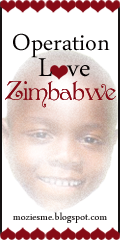We preschoolers have an innate curiosity about the world around us, so Mommy's decided it's time to channel and branch out on that curiosity here, refine our observation skills, expand our vocabulary, and just learn a whole lot in general, all while having FUN!
We've got 48 weeks of fun adventures planned to learn more about the world God made. Each week will be broken out into four sections: Motion (physics), Matter (chemistry), Mitosis (biology), and Me (human anatomy). Sometimes a section will be a simple experiment; other times you might find book suggestions and links to study units.
You'll see a link to M4 at the top of our main blog page - on the M4 page, you'll find links to all our M4 posts. We're starting our year with April - when I turn THREE, but there's no set order to things, so feel free to jump in and/or grab ideas wherever you are. And share your ideas in the comments, too!
On this page, I'll be listing a bunch of general resources we've used. We'll update it over time, so you might want to check back every now and then.
Websites
- Science for Preschoolers
- The Naked Scientists - Kitchen Science
- Science With Me
- Have Fun Teaching (Science worksheets)
- Adventures in Mommydom (weekly Science Sunday meme)
- Peep and the Big Wide World
- Sid the Science Kid
- Mudpies to Magnets: A Preschool Science Curriculum
Science in Seconds for Kids
- Science Through Childrens Literature: An Integrated Approach
- Simple Kitchen Experiments: Learning Science With Everyday Foods
- Simple Weather Experiments with Everyday Materials
- How to Make a Chemical Volcano: And Other Mysterious Experiments
Too Many Rabbits: And Other Fingerplays About Animals, Nature, Weather, and the Universe
Anything by Janice VanCleave
We started our science program off with some vocabulary lessons. Cuz you gotta know what you mean when you talk science stuff. So we read through these books:
- Where is it? (Science Buzzwords)
- Is it Heavy? (Science Buzzwords)
- Is it Shiny? (Science Buzzwords)
- Does It Bounce (Science Buzzwords)
Lots of these words I already know, plus new ones like "transparent" and "opaque". We had fun discussing what was what and looking for examples. In fact, I decided to pull out my train set just to illustrate things a little.
We also worked on observation skills using these books:
Museums
Never underestimate the inspiration you'll get from your local children's science museum. We could probably get 4 experiments per week for the next several years just at Portland's OMSI. Like weight on different planets, the earthquake house, how sailboats work, ball and vacuum experiments, sand flows and dinosaurs, cranes in the Port of Portland, mirror reflections, and lots lots more. If you can't make it there easily, they may have online activities, too.






















.jpg)
4 comments:
Very cool!!!
Thanks for the link to me! And WOW! These are some amazing links to look through.
And I'm with you science museums have way too many cool things to do, and they give me more inspiration of things we can do at home.
I just took my son (20 months) to OMSI for the first time, and he loved it! Dinosaur train on PBS also has lots of good scientific method. I show my high school students "Buddy has a hypothesis"
Enjoy!
I am totally linking you... Hope you don't mind. This info is great. thanks. Will pass it on, and come back to see what I can use for myself. soon... :-)
Post a Comment